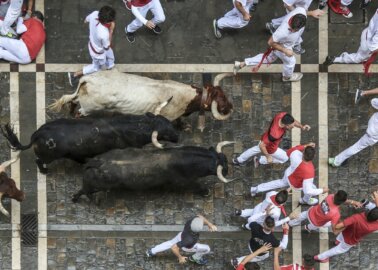Fur-Free Revolution in the UK: Islington Council Is London’s First to Ban Fur
Islington has just become the first London council to ban the sale of fur on council-owned land, including at its markets, joining a growing list of forward-thinking cities and municipalities around the world.

PETA had written to the council ahead of its meeting to discuss a proposed fur ban, urging it to support the ban and implement a no-fur policy immediately. This week, the council made the compassionate decision to “tackle the ‘cruel and awful’ [fur] industry”.
The ban means traders will no longer be able to sell anything containing fur stolen from animals at markets around the borough, which include Camden Passage, Chapel, Exmouth, and Whitecross Street markets.
Islington Is Joining the Fur-Free Revolution
This widespread movement is taking flight as consumers, businesses, and nations alike recognise that innovative faux-fur fabrics are better for the environment and spare animals a miserable life and a bloody, painful death.
 Jo-Anne McArthur | We Animals
Jo-Anne McArthur | We Animals
To date, Los Angeles is the largest city to ban fur sales, followed by San Francisco and São Paulo. The sale of fur from all species of fur-bearing animals is also banned in Berkeley, US. Thirty-six nations have outlawed sales of seal fur, and New Zealand has prohibited sales of mink fur.
The list of countries that have banned fur farming is ever-growing and now includes Austria, Belgium, Bosnia and Herzegovina, Croatia, the Czech Republic, Ireland, Japan, Luxembourg, Macedonia, Norway, Serbia, Slovenia, and the United Kingdom.
What’s Wrong With Fur?
Every year, over 100 million animals are killed for their fur. On fur farms, animals are confined to cramped wire cages, denied the opportunity to do anything that’s natural or important to them, and killed by electrocution, neck-breaking, or drowning.

In addition to being torture for animals, fur farming wreaks havoc on the planet by contributing to climate change, land devastation, pollution, and water contamination.
Animals are also caught in steel-jaw traps in their natural habitats and left to languish – sometimes for days – before succumbing to dehydration, starvation, disease, or attacks by predators or being bludgeoned to death by returning trappers.
What You Can Do
Fur farming has been illegal in Britain for nearly two decades, but fur items are still being imported for sale here. Please join us in calling on the government to introduce a ban on all UK fur imports:



